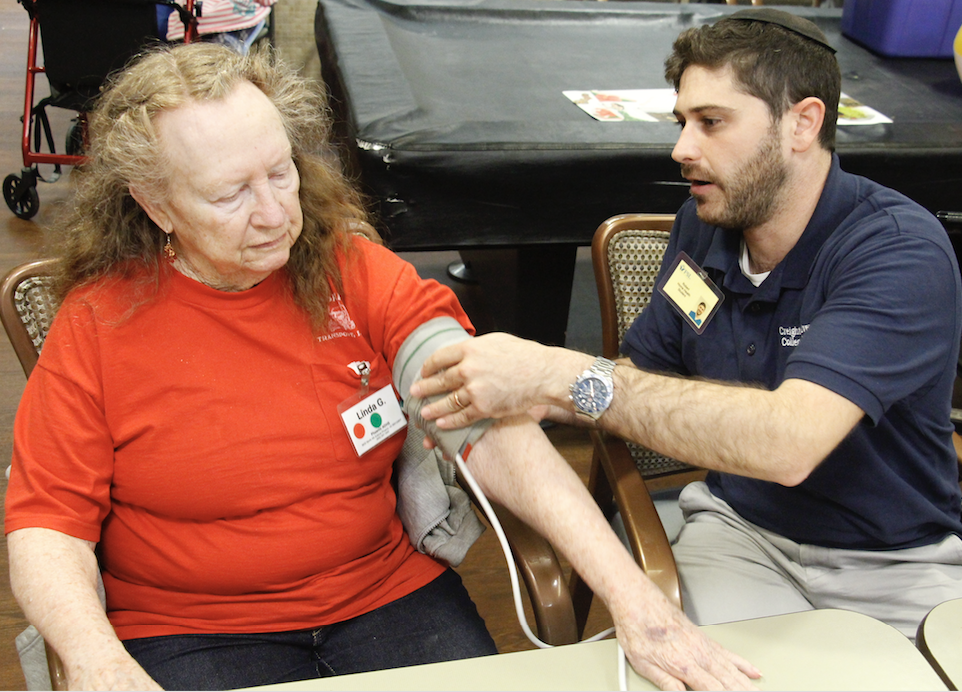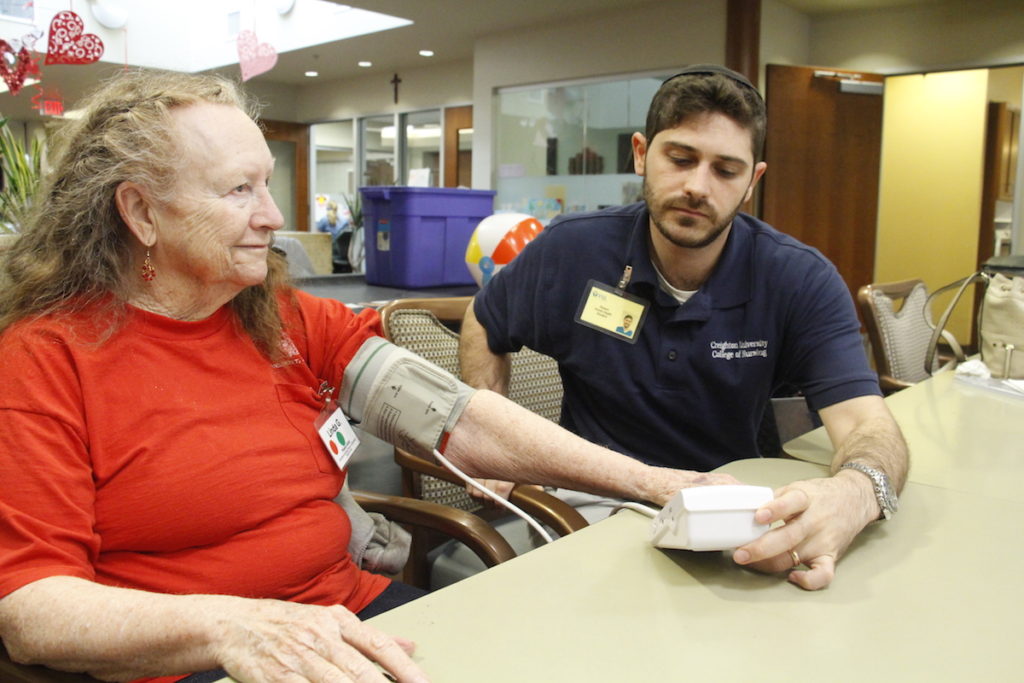Nurses and the nursing profession tend to often be associated with hospitals and doctors’ offices.
Future nurses studying at Creighton University’s School of Medicine at the Phoenix Regional Campus — temporarily located at Park Central Mall with some classes at St. Joseph Hospital’s Learning Institute — are finding more and more how the bulk of their profession can and should be done apart from hospitals.

What’s more, they’re connecting with an array of community entities to gain hands-on experience, but it’s their partnership with the Foundation for Senior Living (FSL) that affords them a host of nursing opportunities all at once.
The growing relationship among Creighton University, FSL and Dignity Health — which has an academic affiliation agreement with the school — is quickly producing skilled nursing students excited to be of service, equipped to pass their boards and ready to make a dent in the nation’s nursing shortage. Arizona is poised to be among states with the highest shortages.
It’s an accelerated nursing program for students who already have a bachelor’s degree, and they spend 24 weeks out in community-based nursing settings. Eight of those weeks are at FSL.
“The community is where health promotion, wellness promotion and the ability to at least maintain the status quo occurs,” explained Mary Lou Rangel, a faculty member at the Omaha-based Jesuit university.
FSL shares the same mission. Whether it’s home health, adult day services, home care, meals or affordable housing, FSL is a longstanding faith-based charity that provides a wide range of services to help people age in place throughout their lives.
Hands-on experience
Creighton’s nursing students get hands-on experience with FSL programs such as home health, skilled hourly home health, adult day health, behavioral health group homes and social services. Some 48 students at a time split up to shadow and support FSL nurses.
“The students learn they can go out there and figure out what it is that happens when patients leave the hospital,” Rangel said.
Some might require medical equipment or a nurse visit to help manage medications. Others might need someone to pick up medicine or groceries or help with small home repairs that could better suit changing mobility levels.
Creighton’s nursing students are always with a nurse, said Ruth Faultner, administrator with FSL’s home health and home care, and they assist with tube feedings, medication and receive other hands-on opportunities they might not get at a hospital due to liability issues.
“It’s great for them to be able to listen to the heart and the lungs and all the assessments. We tell them to get in there and get your hands dirty,” Faultner said.
The students, who have rotated through FSL for just over a year, are grateful for the variety of opportunities, the level of involvement with patients and each nurse’s mentorship. Rob Alderstein was half way through Creighton’s nursing program when he got assigned to FSL.

“These days especially, there’s a large component of nursing in the public health arena. Nurses are doing a lot more education,” Alderstein said.
More from the students
Students in first cohort reconnect with Phoenix roots
How another student reacted to admissions news…
https://twitter.com/HayHoddie/status/1037558723982450688
The aspiring nurse gave clients through FSL’s Adult Day Health Services a presentation on eye health and treatments, particularly for older patients.
“I was pleasantly surprised how engaged people were and how they were asking questions,” Alderstein said. One even requested source material. Alderstein also demonstrated a blood pressure check.
“It helps us hone our clinical skills in a setting that’s a little lower pressure and lower acuity than in a hospital,” he said.
Each of Alderstein’s internships has renewed his interest in nursing and added to the growing list of specialties he’d like to consider. As another bonus, the FSL placement in particular, and studying through a Catholic university, has helped him see some of the similarities the Catholic Church has with his Jewish faith.
Faultner said she enjoys working with the nursing students. They often turn to nursing as a second career with backgrounds in kinetic science, space engineering and other complex majors.
“I always feel so inadequate,” she said.





